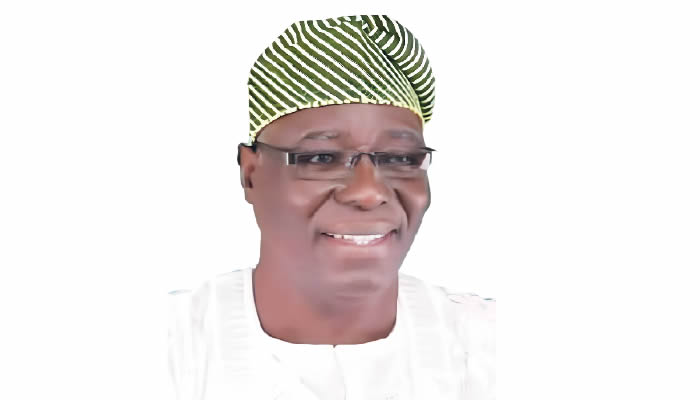Aivoji Downplays Defections, Emphasizes PDP’s Resilience
Philip Aivoji, the chairman of the Peoples Democratic Party (PDP) in Lagos State, dismisses the recent defections of party members, including the former Publicity Secretary, Hakeem Amode, and the 2023 governorship candidate, Abdul-Azeez Adediran (Jandor), to the ruling All Progressives Congress (APC). Aivoji characterizes the defectors as a small, inconsequential group with minimal influence within the party’s grassroots structure. He asserts that the PDP’s foundation remains strong, with intact ward and unit structures across the state. Aivoji portrays the defectors as opportunists seeking personal gain and emphasizes that their departure does not threaten the PDP’s long-term viability. He highlights the influx of new members to replace those who left, indicating that the PDP continues to attract support and remains a formidable force in Lagos politics.
Aivoji links the recent defections to a common group of individuals who lacked relevance within the PDP. He underscores the small number of those who defected with Amode, questioning how such a small group could claim to have collapsed a party with decades of history. He suggests that the defectors’ actions are motivated by self-serving interests and that the APC is likely aware of their opportunistic nature. Aivoji conveys confidence that the PDP will overcome these challenges and emerge stronger, highlighting the ongoing efforts to address internal issues and prepare for the 2027 elections.
Aivoji Criticizes Current Political Landscape, Calls for True Democracy
Aivoji expresses deep concerns about the state of democracy in Nigeria, arguing that current political practices deviate significantly from the ideals envisioned by pro-democracy activists like MKO Abiola. He criticizes the lack of transparency and independence within the electoral system, pointing to the need for reforms similar to those proposed during former President Goodluck Jonathan’s administration. Aivoji accuses the APC of undermining democratic institutions and prioritizing self-interest over the well-being of the nation. He laments the collapse of internal democracy within political parties and the prevalence of money politics, which he believes limits opportunities for ordinary citizens to participate meaningfully in the political process.
Aivoji criticizes the current administration’s tendency to blame previous governments for their shortcomings, calling for a more proactive approach to addressing the nation’s challenges. He questions the type of leadership being fostered in the country, expressing concern that future leaders may be even more self-serving than the current ones. Aivoji advocates for a return to the principles of selfless service and nation-building, emphasizing the importance of building strong institutions and promoting good governance. He stresses the need for accountability and conscience-driven leadership, reminding everyone that they will ultimately be held responsible for their actions.
Aivoji Predicts APC’s Downfall, Emphasizes People Power
Aivoji predicts that the next elections will be a contest between the APC and the Nigerian people, rather than a traditional party-versus-party competition. He expresses confidence that the people will rise up against the APC and demand change. Aivoji dismisses concerns about party structures aligning with the current government, highlighting the power of the people to overcome established political machinery. He cites Tinubu’s defeat in Lagos during the 2023 elections as evidence that even with the backing of powerful structures, the will of the people can prevail. He emphasizes the importance of working with like-minded individuals who share a commitment to transforming the nation.
Aivoji reiterates his determination to contribute to Tinubu’s potential defeat in Lagos in 2027, emphasizing his desire to see positive change in the state and the country as a whole. He calls for the establishment of a fair and credible electoral system, asserting that Tinubu is unlikely to support such reforms. Aivoji urges citizens to actively participate in the political process and hold the government accountable. He believes that mass mobilization and a demand for a transparent electoral system are crucial for achieving true democracy in Nigeria. Aivoji emphasizes the importance of people speaking out and demanding change, warning that complacency will only perpetuate the current flawed system. He concludes with a powerful call to action, urging citizens to rise up and fight for their right to a free, fair, and credible electoral process.
Aivoji reiterates his conviction that the PDP will rebound from its current challenges. He expects further defections but remains unconcerned, suggesting a cleansing effect that will leave the party stronger and more focused. He points to the 2023 elections, where several incumbent governors were defeated, as proof that established political structures are not insurmountable. Aivoji underscores the power of the people to effect change, even in the face of seemingly insurmountable odds.
Aivoji’s message is clear: he believes the PDP remains a viable force in Nigerian politics, and he is confident in the power of the people to bring about meaningful change. He condemns the current political climate, characterized by self-serving leaders and a lack of true democracy. He calls for a return to principled leadership, transparent elections, and a system that empowers the people to hold their leaders accountable. Aivoji’s vision for the future of Nigerian politics hinges on the active participation of citizens who demand a better future for themselves and their children.


